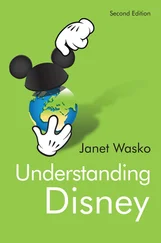Charities do not continue for ever. Some simply achieve their aim and close. Others become out-of-date or no longer relevant. If the local authority takes over the responsibility for keeping Whistlehampton's playground in good order, the Whistlehampton Playground Charity will close - but the villagers will certainly find something else which needs to be done. Some charities change their aims and merge with others. Others close because no-one is prepared to give the time, effort and energy to keeping them going. Beatrice and Sheila have been very active in starting and sustaining their charity. They have tried to make sure that it continues even when they retire. Since most towns have plenty of people who want to help their community somehow or other, their charity will probably continue. But perhaps not. Perhaps enthusiasm will fade. The Charities Register has a huge list of charities which have closed down. Nobody can force you to keep a voluntary activity going, whether it be for the benefit yourselves (as in the last chapter) or for other people (as in this chapter). In fact, as you can deduce, the benefits go in both directions, in both sorts of voluntary activity. Some are charities and others are not, but the impulse behind them is similar. And fortunately there are thousands of people in Britain today who are sitting round their kitchen tables saying, 'Don't you think it would be a good idea if we did this?
Chapter 4. Culture and the Arts
This is a brief chapter. I discuss the place of what some people call 'high art' in our society - painting, music, literature, drama which is either already 'classical' or which aspires to be. The popular arts which touch so many people are better explored in more immediate ways - by listening, looking and enjoying via the latest technology. Many people would consider the distinction I am making to be a false one and I do not want to defend it in this chapter except for practical reasons. While we cannot be sure that the new works of 'high art' which we admire will last, the point is that certain standards are being applied in discussing them - the standards which we apply to works which already have a classical status.
The culture of another country is often, alas, inaccessible. So much of our finest artistic activity takes the form of theatrical productions, concerts, exhibitions of paintings and sculpture, and similar creations which last a limited time and which you will not be able to see or hear. Since there is no point in providing lists which will be quickly out of date, I have chosen to give an overview of the artistic scene and to reflect briefly on our attitude to the arts.
One of the questions which I am sometimes asked by Russians - very politely - is: 'Is Britain a cultured country?' The implication, perhaps picked up from the French, is that we are a nation of shopkeepers or traders, good at military matters and administration, but useless when the nations gather to discuss culture. As in all countries, there are plenty of philistines, but my impression of my own country is that it is packed with artistic events, many of them based on amateur involvement.
In British schools children can choose to learn a musical instrument - not just the piano or the guitar, but the violin, the clarinet, the trumpet, the horn, and so on. These lessons and the cost of the instruments are subsidized by the government. (Music teaching declined in schools, but is now being brought back as educationalists realise its importance socially, psychologically and artistically.) Many schools have flourishing orchestras as well as choirs, while the most gifted children play in full-scale concerts. They play the music of English composers - Byrd, Purcell, Elgar, Britten - but their musical repertoire is also international.
On our classical music BBC radio channel (Radio 3) which reaches everyone in the country, music from all nations is played and discussed, with plenty of time given to specialist minority tastes. The BBC also has several orchestras and promotes a huge range of classical 'Promenade Concerts' that provide music by the greatest composers and new, specially commissioned works for more than a month each summer. The cheap tickets mean that these concerts attract tens of thousands of people each year to the Albert Hall. They are also broadcast on Radio 3 for the benefit of millions of other listeners.
We are less famous for our performances of opera and ballet. But our national opera companies regularly tour to different cities, and if they have government grants (as almost all of them do) they have to provide education. So they go into schools to teach children about opera, they run workshops and master-classes, they involve the community. In fact, involving the community is one of the chief concerns of the government and charitable organisations which provide funds for the arts. So you should understand that throughout Britain, in towns and villages, amateur choirs sing in municipal halls, concert halls and churches. They sing all kinds of music; English baroque choral music, German folk songs, Italian masses, and unusual works from Eastern Asia or Latin America. Other concerts of folk music, local music, church music and the compositions of local groups can be heard in halls and pubs and cafes and outdoors at all times of the year. Some of these performances are indubitably 'amateur' with all the limitations of enthusiasm without great skill. Others are as good as many professional musicians, sometimes acquiring a national reputation. Committed performers gather together for annual festivals of music.
The English for some reason have always produced brilliant actors; even if you cannot visit our theatres you can watch the 'costume dramas' and classical productions acted for BBC television and shown throughout the world. You will not be able to join in the excitement of the live performance, but you can be sure that our actors take it for granted that they must tackle new plays and new productions of old plays. They do not make a habit of repeating performances of 40 years ago, with actors who played the same parts 40 years ago. Our National Theatre and Royal Shakespeare Company work as actors' co-operatives, thereby encouraging fine acting from everyone. Productions of Shakespeare are everywhere, not just because all schoolchildren have to study him, but because his plays work wonderfully in the theatre, arousing passionate controversy about characters and language. Shakespeare's plays can be electrically exciting - and very funny.
Soviet, and then, Russian education used to give an important place in the syllabus on foreign countries to knowing the significant people in the culture of those countries. I was impressed at the width and depth of knowledge which was expected of children in your schools - until I saw it in reality. In a Russian art gallery, I watched a school group - girls and boys aged about 11 - with their teacher. Each child had a list of names of painters. They had to find a picture by each painter and make a tick against the painter's name. So the children moved from picture to picture, checked the labels, and immediately moved on to the next one. The teacher made no suggestion that they should find a picture they liked and discuss it. I watched in horror at such a pointless exercise. (I have since seen Russian children looking at pictures, so perhaps this was an aberration.)
If you go into the British Museum or the National Gallery in London, you will find children everywhere. In the British Museum they are busy drawing Egyptian statues, copying hieroglyphics, discussing the differences between monuments in one period and another. They have paper, pencil, sometimes a list of questions to which they can find the answers only by examining the sculptures and mummies and so forth. Their teachers and the museum attendants encourage them to search for answers themselves. In the National Gallery, they will be sitting on the floor, looking for maybe ten minutes at one picture. A specialist (or their own teacher) will ask them what they enjoy about the picture; and then will point out details and techniques, and teach them to enjoy that picture more fully. Grown-ups join in too, or listen to specialist talks for adults. This impression of busy activity and curiosity is owed partly to the fact that our great national museums and art galleries are free - free to British citizens and free to foreigners. Many of us believe passionately that our national cultural collections are for everyone, and that those who come should be helped to understand them in order to enjoy them more profoundly. Millions of people do come to see our art and historical culture.
Читать дальше












